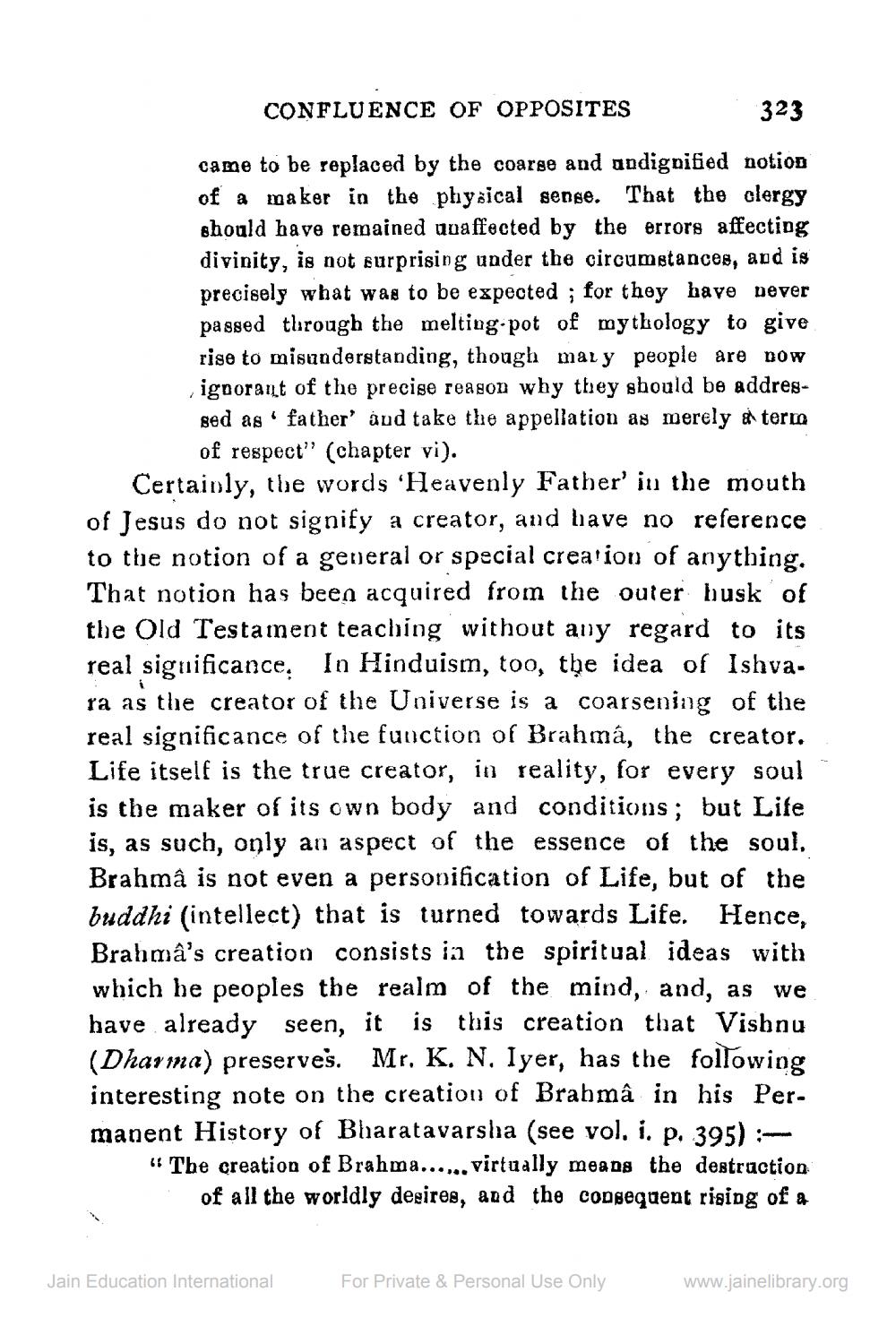________________
CONFLUENCE OF OPPOSITES
323
came to be replaced by the coarse and undignified notion of a maker in the physical sense. That the clergy should have remained unaffected by the errors affecting divinity, is not surprising under the circumstances, and is precisely what was to be expected; for they have never passed through the melting pot of mythology to give rise to misunderstanding, though many people are DOW ignorant of the precise reason why they should be addressed as father' and take the appellation as merely a term of respect" (chapter vi).
Certainly, the words 'Heavenly Father' in the mouth of Jesus do not signify a creator, and have no reference to the notion of a general or special creation of anything. That notion has been acquired from the outer husk of the Old Testament teaching without any regard to its real significance. In Hinduism, too, the idea of Ishvara as the creator of the Universe is a coarsening of the real significance of the function of Brahma, the creator. Life itself is the true creator, in reality, for every soul is the maker of its own body and conditions; but Life is, as such, only an aspect of the essence of the soul, Brahmâ is not even a personification of Life, but of the buddhi (intellect) that is turned towards Life. Hence, Brahmâ's creation consists in the spiritual ideas with which he peoples the realm of the mind, and, as we have already seen, it is this creation that Vishnu (Dharma) preserves. Mr. K. N. Iyer, has the following interesting note on the creation of Brahmâ in his Permanent History of Bharatavarsha (see vol. i. p. 395) :— "The creation of Brahma...... virtually means the destruction of all the worldly desires, and the consequent rising of a
Jain Education International
For Private & Personal Use Only
www.jainelibrary.org




